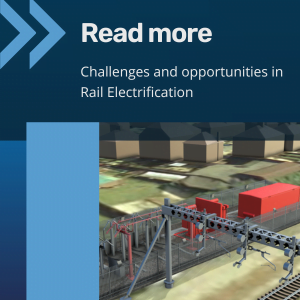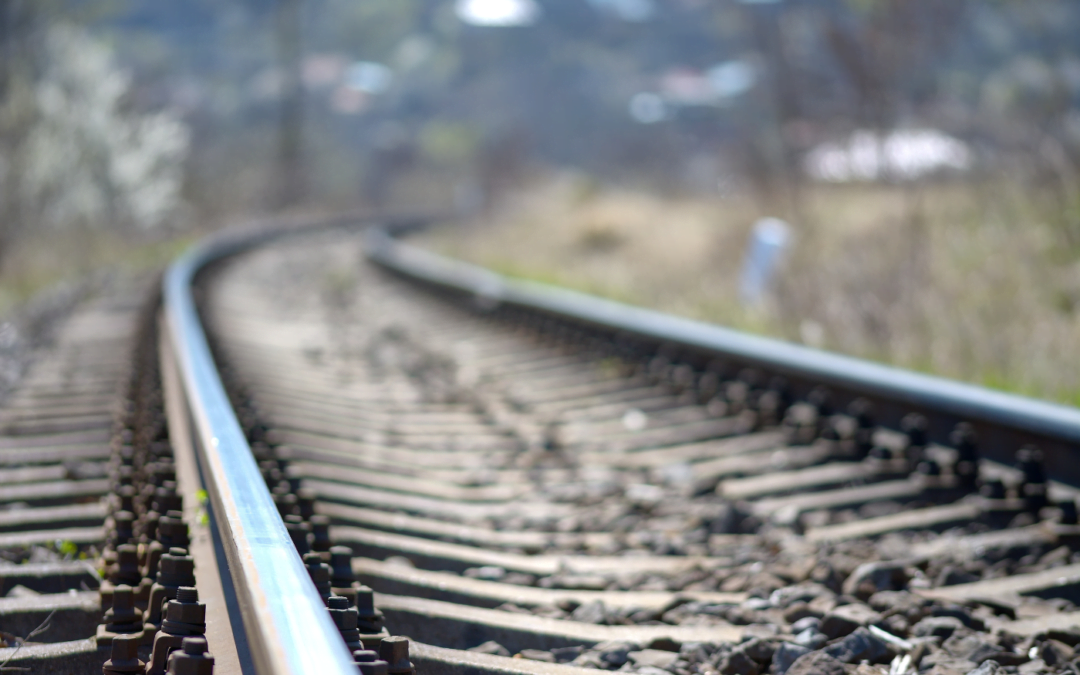Whitfield Consulting Services (WCS) has extensive experience in both the rail and power and energy sectors. Rail in particular often comes up in internal discussions as an excellent training ground for young engineers, and more generally a sector which engineers of any discipline and experience can learn from. We asked Jeremy Barnes, Technical Director at WCS, to expand on this idea.
What makes UK Rail stand out?
As a civil engineer, I trained and largely worked in the UK, but it has been a very international career, with several years in Hong Kong, and secondments and projects relating to Malaysia, Vietnam, Dubai and Taiwan. Like quite a few of my colleagues here at WCS, you could describe my experience as mixed, but with a focus on bridges and rail. I think this gives me a good basis for comparison, when contrasting rail with other engineering sectors, and considering the UK’s rail network with those I’ve seen around the world.
The focus on safety, and the regulatory framework that ensures a consistent high quality in engineering, sets the UK rail industry apart. In my experience, working in rail as an engineer encourages a useful, communications-focused mindset, that you take beyond the sector.
Finally, I think rail is an excellent starting point for anyone who wants to help address some very specific and enormously important wider issues, particularly climate change.
What can we learn from safety and regulation in rail?
The UK has one of the safest rail networks in Europe and safety is at the heart of how the industry operates. Working in Rail in the UK means safety becomes a factor in every aspect of your work, and as engineers, this mindset is very transferable to our other areas of work.
Something that stands out is that while hazard identification and risk reduction is considered in all sectors, the formal process the Rail industry has developed, where partners across a project meet regularly for safety workshops, is unique in being continual rather than a one-off. This leads to good engineering practice and a safety-critical mindset which carries over well to any future work.
Network Rail, of course, sets many of our standards, and even post-Brexit many regulations are informed by international rail interoperability standards. Our clients often have detailed standardised requirements. WCS also has formalised and written engineering procedures, and every project requires us to ensure we are meeting all parties’ standards. We are also Railway Industry Supplier Qualification Scheme audited and compliant with ISO 9001, 14001 and 45001.
Beyond this, the nature of rail projects means that engineers need to be multi-disciplinary, familiar with standards from beyond rail and able to apply them confidently. For example, a road bridge demands knowledge of standards set by bodies such as National Highways, or the Office for Road and Rail, while electrification requires awareness of rail and also National Grid standards. Of course, some rail projects involve other rail bodies altogether, such as London Underground. As a result of working in rail, engineers are likely to have a skillset and familiarity with a breadth of standards, which are applicable across many other sectors.
How has rail shaped your collaborative approach?
The technical meetings I attend in rail projects typically see civil, electrical and mechanical engineers involved, many with specific specialisations such as track, signalling, or power. Alongside this work with fellow engineers, we also collaborate with clients and other partner organisations. One approach we’ve adopted from our rail projects at WCS which is beneficial across all sectors, is meeting early and often with clients and partners for regular buildability reviews, meaning all parties have had input and the final designs require few revisions. We find these drive efficiencies in our work and that of the participating organisations.
The broad nature of rail engineering projects means nobody knows everything or even imagines they do – only the team is truly knowledgeable. This reality encourages early engagement with others, an emphasis on communication and a tendency to listen and ask, all of which are excellent working practices for any engineer.
How does experience in rail develop efficiency and adaptability?
If you close a road, drivers’ appropriate diversionary routes can generally be provided. Rail closures are more consequential, meaning they are limited and carefully planned. It’s not unusual to have a 48-hour window to do your trackside work, with a need to wait perhaps another year to take a further rail possession, if work is not complete.
This further reinforces the tendency of rail engineers towards careful preparation. It has also encouraged a focus on buildability in our design work, and the adoption of techniques such as offsite fabrication, which reduces the risk of build overrunning, as well as being safer (for example minimising working at height), and delivering savings in terms of cost and improvements in quality of materials used such as concrete. The efficiencies that off-site fabrication and buildability offers mean this approach is increasingly used in many sectors, and experience with this is applicable to many projects.
Why is sustainability so important to WCS?
As we discussed in our recent piece about rail electrification, the UK is committed to phasing out diesel trains by 2040. Transport accounts for a quarter of all emissions globally, and rail has a much lower carbon footprint than other forms of transport, which will only grow when the network becomes fully electrified. Encouraging a transport switch to rail is vital in the UK to deliver on the net zero commitments.
The scale of meeting this goal is huge. Overall, Network Rail manages 10,000 miles of track and several times as many rail journeys as many larger countries. The scale and diversity of conditions across the network, and of infrastructure that can be well over 100 years old, means finding solutions in the rail sector requires a creative approach to overcoming challenges.
The electrification of the rail network is a lesson in being open to multiple solutions. Eliminating diesel means that as well as electrified lines, the network will see trains running on electric batteries and hydrogen fuel cells. Working on Rail electrification, and seeing the industry innovate to overcome challenges, shows how different areas of work within the industry all play a key role in order to reach net zero.
WCS has been deeply involved in rail electrification projects and additionally has a long record of involvement in other sustainability-related projects, such as the world’s largest offshore wind farm, Dogger Bank, or Welborne Garden Village, where heating and hot water for this new community will come from an innovative ambient heat network. We’re enormously proud to be contributing to the UK’s transition to Net Zero. That passion, as much as engineering experience, positions us well to engage with any sustainability-related projects.
How does this shape WCS’s work?
In our experience, a rail grounding is one of the best possible for engineers not only to prepare for future sustainability projects but to contribute positively, directly day to day in their current work.
I can’t think of a field I would recommend more highly to a young engineer starting out, but also for engineers at any stage of their career.
Taking the key learnings from rail into other areas of work has shaped WCS’s collaborative and agile approach. Openness to new practices and adaptability are important for success in engineering and with cost pressures top of mind for many clients, the ability to deliver efficiently, while also prioritising safety and quality is a skill set that has value in every sector.
If you are looking for engineering services, our team are ready to help. Get in touch on +44(0)20 3581 7847, info@wcs-consult.co.uk or via our contact page.

